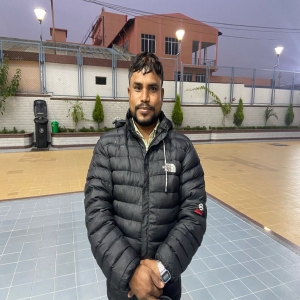
.jpg)
The voice on the phone was hushed, barely above a whisper. "We have to be careful," he said in Nepali. "The neighbors are watching. They already held a funeral for me." He wasn't dead—at least not physically. However, to his family and community, Bhaluwan Kumar Paswan (name changed) ceased to exist the day he embraced Christianity. In a small village in southern Nepal, Bhaluwan now lives a double life: publicly conforming to Hindu customs, privately devoted to Jesus. He is what many call a "crypto-Christian"—a secret believer in a land where faith can be fatal.
Hidden Faith, Enduring Witness
The term "crypto-Christian" refers to those who secretly follow Christ while outwardly adhering to another religion, often to avoid persecution. From the Roman catacombs to the hidden churches of Edo-period Japan, from the Ottoman Empire to present-day Nepal, the story of secret discipleship is a testament to the enduring power of belief in hostile terrain.
Echoes of the Early Church
This practice traces back to Christianity's earliest days. For the first three centuries, believers lived under the threat of Jewish and Roman persecution. They met in clandestine house churches, communicated through covert symbols like the ichthys (fish)—a Greek acrostic for "Jesus Christ, Son of God, Savior"—and found refuge in the catacombs of Rome. Secrecy wasn't a preference; it was a lifeline.
Today, similar scenes unfold in Nepal. Though declared a secular republic in 2008, the nation's legal and cultural frameworks remain steeped in Hindu-majority sentiment. Nepal's National Penal Code of 2017 criminalises religious conversion, with penalties of up to five years in prison—a law frequently used to target Christians.
The Cost of Discipleship
This legal and social hostility has birthed a new generation of crypto-Christians. Their testimonies reveal a faith that refuses to die.
Mamata, a young woman from a remote village, endured relentless pressure from her husband and in-laws to renounce her faith. In a society where family and community are everything, conversion can mean social death. "I was threatened with abandonment," she shared. "My parents and brothers disowned me." Her story echoes the early church's experience of being cast out from families and synagogues.
Worship, too, must be hidden. Small, discreet house churches are common. Pastor Mahesh Mukhiya once led a congregation of 70 in a rented home. After Hindu extremists threatened the landlord, they were forced to relocate. Mahesh now searches for safe, secret spaces in a village where warnings have been issued against renting to Christians. In Nepal, gathering for worship is not a right—it's an act of defiance.
Counting the Uncounted
The Christian population in Nepal remains contested. The 2021 census reported 512,313 Christians—about 1.76% of the population. Yet many Christian organisations estimate the number to be far higher, possibly exceeding 1 million, with some claiming up to 3 million (nearly 10%). Catholics are estimated to number between 8,000 and 10,000. This discrepancy likely reflects the reluctance of believers to publicly declare their faith, fearing legal repercussions and social ostracism.
A Gospel of Dignity
Many converts come from marginalised communities, especially Dalits (formerly "untouchables"), drawn to Christianity's radical message of equality. "The higher castes treated dogs better than us," one pastor recalled. "But among Christians, there is no discrimination—we are all equal." This promise of dignity and belonging often demands a steep price: secrecy, sacrifice, and spiritual solitude.
Toward the Light
The stories of Bhaluwan, Mamata, and Pastor Mahesh are not anomalies—they are mirrors of a broader reality. Crypto-Christians in Nepal embody a living bridge between the persecuted early church and today's global body of Christ. Their hidden worship, quiet courage, and unwavering faith remind us that for millions, discipleship still costs everything.
Their witness is not just survival—it is resurrection.